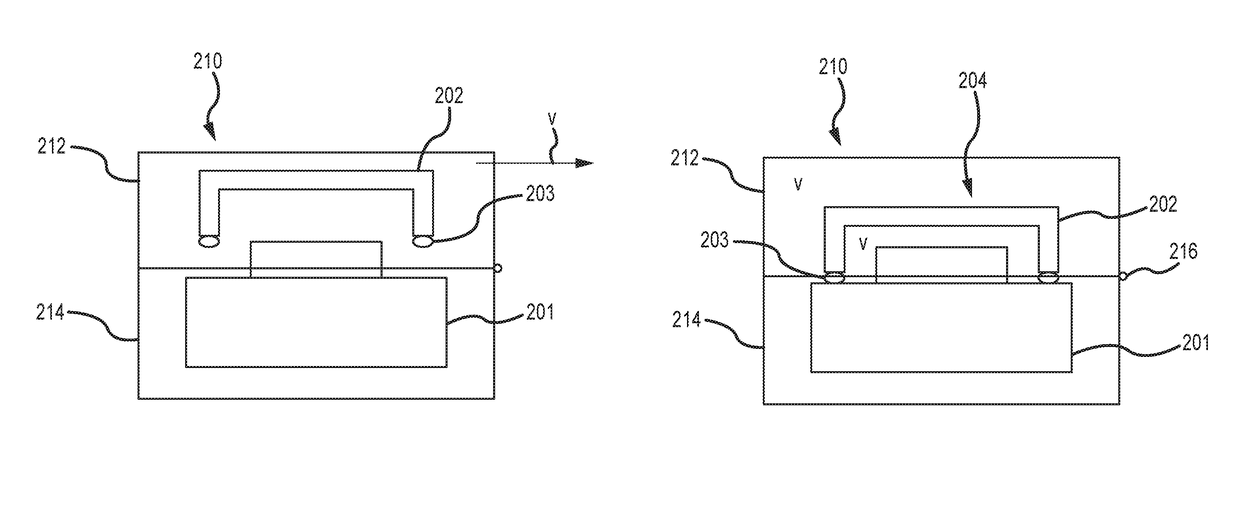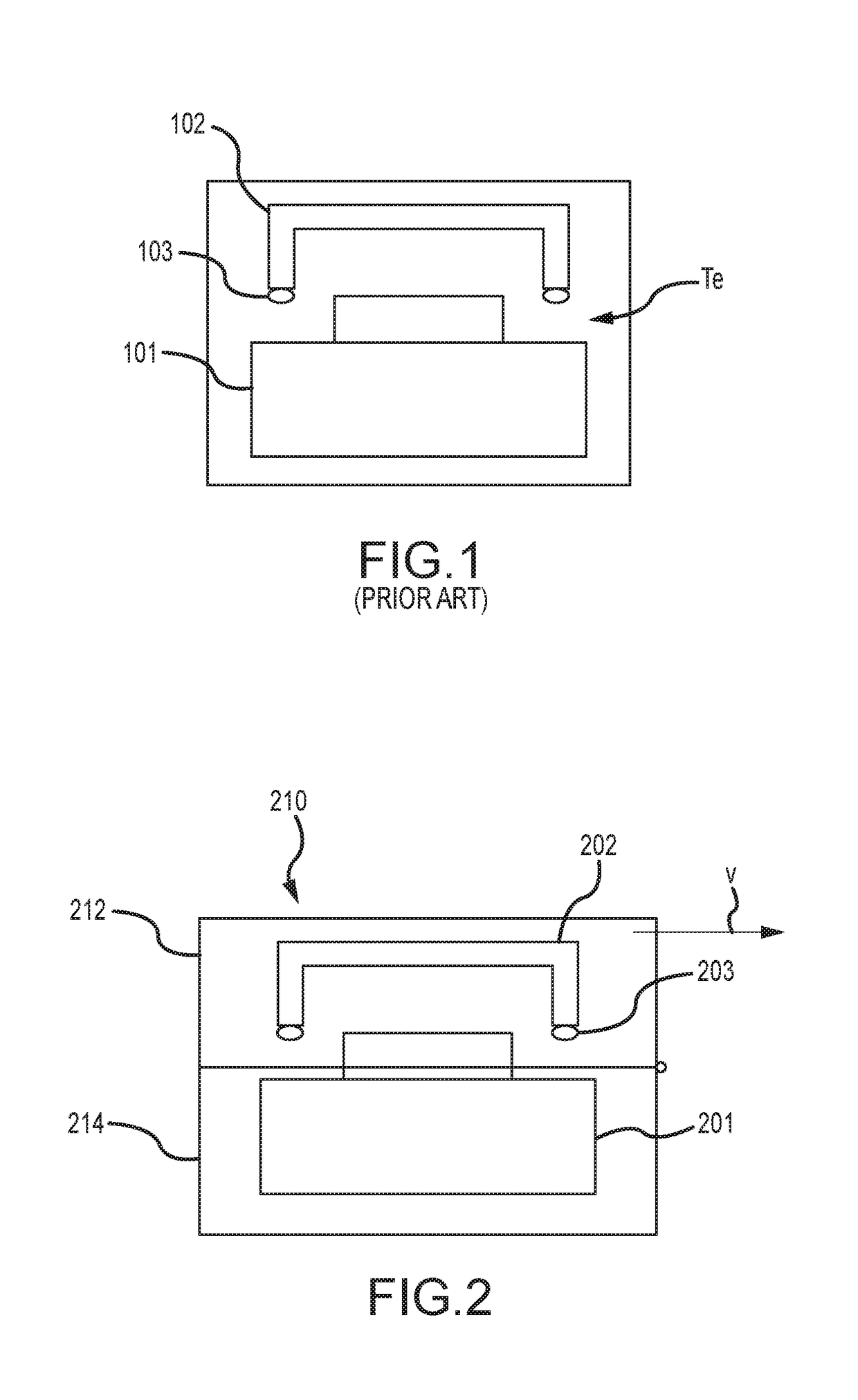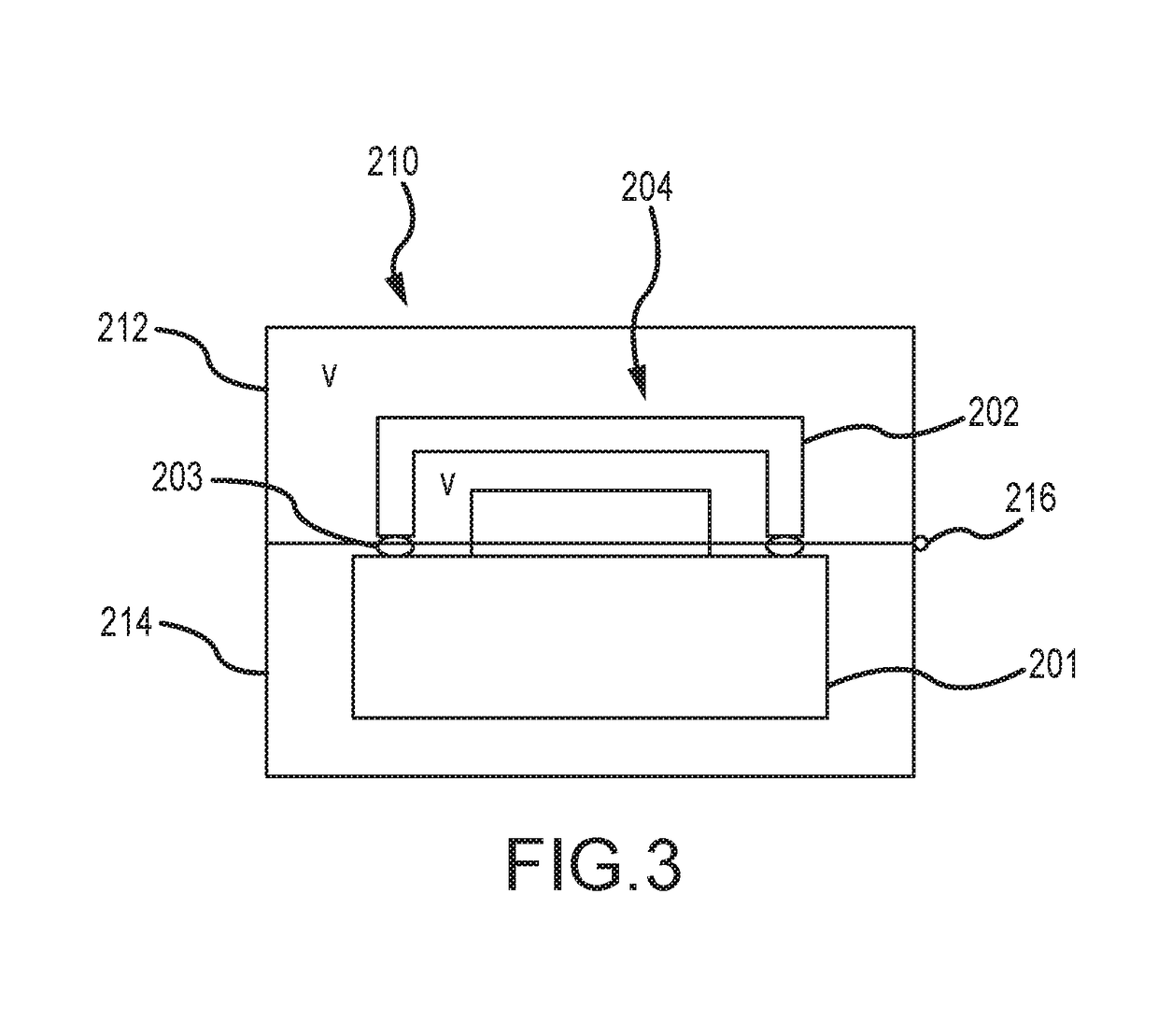Vacuum assisted sealing processes and systems for increasing air cavity package manufacturing rates
a vacuum assisted sealing and air cavity technology, applied in the direction of electrical equipment, basic electric elements, semiconductor/solid-state device details, etc., can solve the problems of increasing the gas pressure in the package, reducing and reducing the leak-free seal effect, so as to reduce the internal pressure of the package and increase the uph of the electronic packag
- Summary
- Abstract
- Description
- Claims
- Application Information
AI Technical Summary
Benefits of technology
Problems solved by technology
Method used
Image
Examples
Embodiment Construction
[0030]Persons skilled in the art will readily appreciate that various aspects of the present disclosure can be realized by any number of processes, systems, structures, and components configured to perform various functions disclosed herein. Stated differently, other such processes, systems, structures, and components can be incorporated herein to perform the intended functions. It should also be noted that the accompanying drawing figures referred to herein are not all necessarily drawn to scale, and may be exaggerated to illustrate various aspects of the present disclosure, and in that regard, the drawing figures should not be construed as limiting.
[0031]Additionally, the present disclosure contemplates the manufacture of various electronic packages now known or as yet unknown in the art. While at various times specific embodiments of electronic packages and the components that such packages are manufactured from are referred to herein, it should be appreciated that this disclosur...
PUM
 Login to View More
Login to View More Abstract
Description
Claims
Application Information
 Login to View More
Login to View More - R&D
- Intellectual Property
- Life Sciences
- Materials
- Tech Scout
- Unparalleled Data Quality
- Higher Quality Content
- 60% Fewer Hallucinations
Browse by: Latest US Patents, China's latest patents, Technical Efficacy Thesaurus, Application Domain, Technology Topic, Popular Technical Reports.
© 2025 PatSnap. All rights reserved.Legal|Privacy policy|Modern Slavery Act Transparency Statement|Sitemap|About US| Contact US: help@patsnap.com



